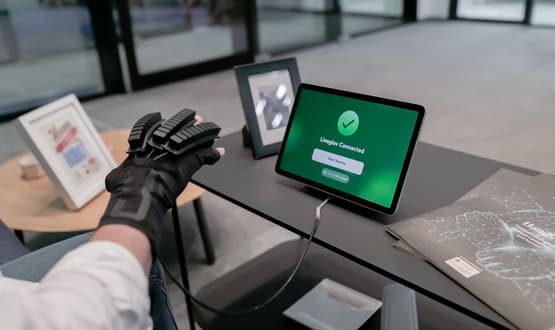Robot cat gives patients happy felines
- 5 November 2004
Researchers in Georgetown University, Washington DC, have found that stroking a robotic cat is more beneficial to health than petting a toy; and that such a machine could even remind patients to take medication.
Alexander and Elena Libin, a husband-and-wife team of robotic psychology researchers, found that the NeCoRo robots (below), manufactured by Japanese company Omron, increase attention and focus among sufferers of dementia and coronary artery disease.

“We used the plush cat and a robotic cat and found that a robotic cat was more self-engaging and triggered positive emotions and interest more than the plush cat," Alexander Libin told ABC News.
Renata Bushko, chair of the Future of Technology Institute where the researchers presented their work, said that the concept could be extended. “Robocats will be very useful in disease management, by reminding patients to take medication at a certain time," she said.
The robot is programmed to respond in the same way a typical feline would, becoming angry or happy when hit or stroked. It is also sophisticated enough to learn and respond to its own name, and has the same biological rhythms as a cat. Although the pseudo-pussycat is unable to walk, its legs and tail can still move and it can make forty-eight different catlike noises.
Another advantage of NeCoRo is that the only feeding and maintenance it requires is of fresh batteries; making it ideal for people who are financially or mentally unable to be responsible a real animal. However, bringing the fake feline into your home comes at a price; a new model costs close to £1,000.
The Libins found that patients would speak and react to the cat in the same way as they would with a real animal, calling it pet names or giving it commands, and discovered measurable benefits from interaction with the machine.
Research has already proven that interaction with pets can improve health of certain patients. Psychologists at the University of Pennsylvania have found that AAT (Animal-Assisted Therapy) can increase focus and decrease aggression in Alzhemier’s patients and children with ADHD.
The Libins have published several papers on ‘robotherapy’ and ‘robopsychology’. They are planning on doing further research with the cat in nursing homes and with the elderly. “We’re participating in an ongoing study with assisted-living facilities for people living in these kinds of special settings," said Mr Libin.
Links
NeCoRo – robot cat homepage (in Japanese)
Robotherapy – Alexander and Elena Libin’s research
Pets And People – collection of research into (real) animals in healthcare




